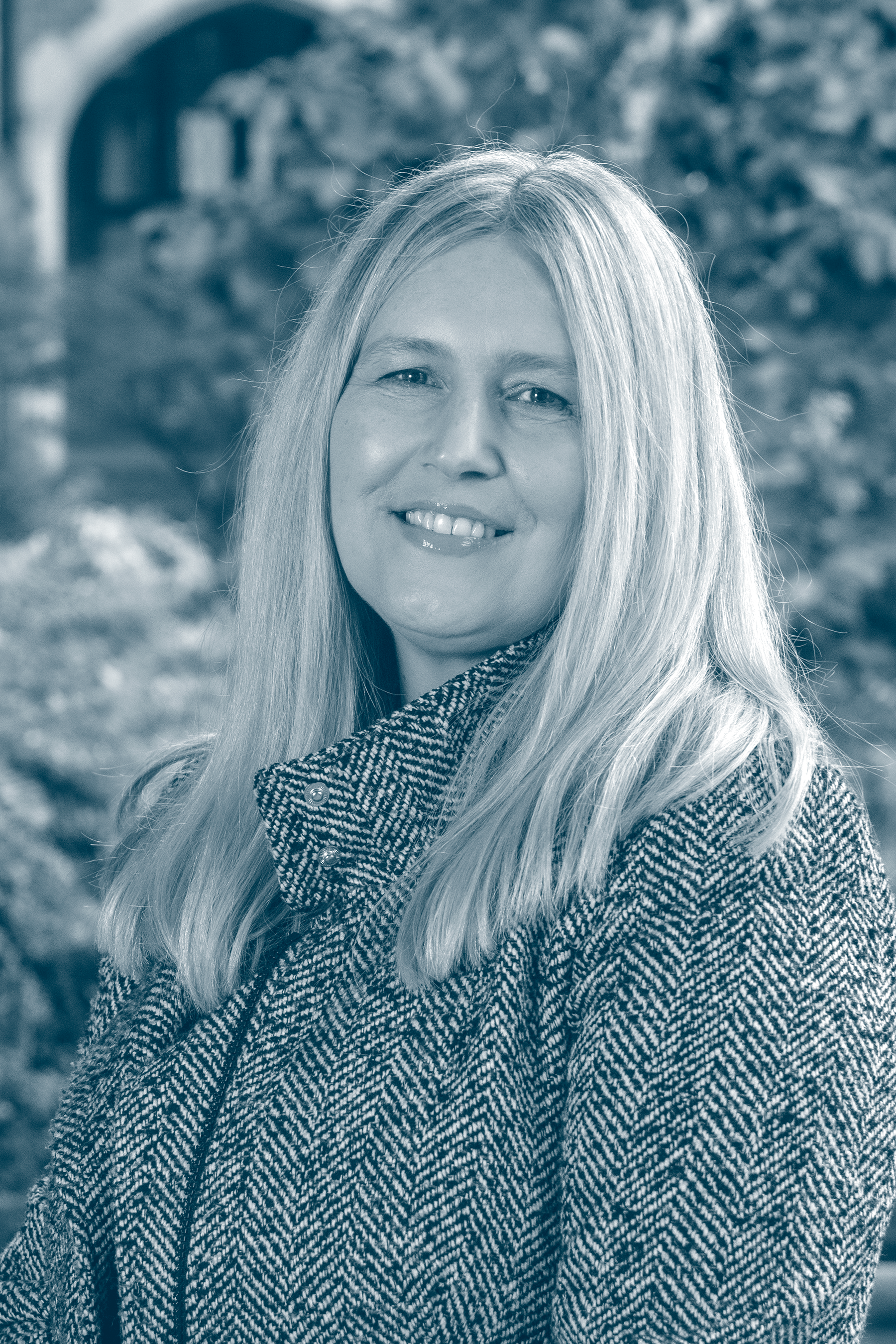
Programme Committee

Programme committee
The Maths Summit Programme Committee, chaired by Professor Catherine Hobbs, has been drawn from across the mathematical community to provide expert insight and advice on the Summit’s content and focus.
Professor Catherine Hobbs (Chair)
Professor Hobbs is Chair of the Heilbronn Institute for Mathematical Sciences,University of Bristol. As Chair of the research institute, she works with the mathematics community and government to apply mathematical knowledge and skills to real life problems as well as nurturing the mathematical sciences pipeline from schools through to high level research.
Professor Hobbs is also currently Vice President of the London Mathematical Society and Honorary Secretary (Education) of the Institute of Mathematics and its Applications. She is on the Executive Committee of the proto-Academy for the Mathematical Sciences, where she leads on Policy.

Professor Sir John Aston
Professor Sir John Aston is Harding Professor of Statistics in Public Life at the University of Cambridge, where he leads research into the use of quantitative evidence in public policy making, works with those in public life to ensure the best methods are used, and aims to improve the use of statistics and other quantitative evidence in public policy debates. His interests include all areas of Applied Statistics but particularly Statistical Neuroimaging, Official Statistics and Statistical Linguistics. John has methodological interests amongst other things in Functional Data Analysis, Time Series Analysis, Image Analysis, Changepoint Analysis, and Spatial-Temporal Statistics. He also works in the areas of statistics in healthcare, particularly medical imaging.
He is a non-Executive Board Member of the UK Statistics Authority and from 2017-2020 was Chief Scientific Adviser to the Home Office and Director-General for Science, Technology, Analysis, Research and Strategy. He was a founding director of the Alan Turing Institute. He is a member of the London Policing Board and president-elect of the Royal Statistical Society, where he will serve as President 2025-26.
John was knighted in the 2021 Birthday Honours for services to statistics and public policymaking.

Professor Rachel Bearon
Professor Bearon is Executive Dean of the Faculty of Natural, Mathematical & Engineering Sciences and Professor of Mathematical Biology at King’s College London. Prior to this she was Head of the Department of Mathematical Sciences at the University of Liverpool. Her research concerns the spatial and temporal dynamics of biological systems, ranging from bacterial chemotaxis, cancer cell motility and phytoplankton in turbulence, to modelling cell-signalling pathways, intracellular protein dynamics and drug transport.
Rachel is a Fellow of the Institute of Mathematics and its Applications and has been on its Council (2017-2023). She is a founding trustee of the Academy for Mathematical Sciences and serves on the Executive Committee for its set-up phase.

Ms Catherine Boulton
At the Royal Society, Catherine leads education policy work on maths and works closely with the Royal Society’s Advisory Committee on Mathematics Education (RS ACME). This includes overseeing the Mathematical Futures Programme which is investigating at the mathematical competences young people may need 20 years from now, and the implications of this for our education system.
Catherine spent many years in educational publishing – commissioning books and other resources across a wide range of subjects and age groups. This included periods at the BBC, Pearson and Edexcel. Having left publishing to complete a primary PGCE, she then worked for a charity think tank on a tool to measure young people’s wellbeing before spending six years at the National Literacy Trust, developing and delivering professional development programmes for teachers.

Professor Chris Breward
Professor Breward is an applied mathematician with a long history industrial collaboration, having worked with over 40 different companies. Amongst many other outcomes, his research has been used to make “ultrathin” glass sheets viable, and to enhance the operation of sulphur-dioxide-removing filters.
Since 2014, he has been the co-Director of the InFoMM CDT at the University of Oxford, where he built a highly successful partnership with over 80 firms, and delivered over 200 collaborative projects, all focused on company-specific challenges and co-funded with industry. He is the co-founding Chief Moderator of Mathematics-In-Industry Reports, an online repository designed to enable fast dissemination of the results from mathematics-with-industry study groups around the world.
In April 2023 he became the inaugural Scientific Director of the UK’s Knowledge Exchange Hub for Mathematical Sciences.

Dr Jessica Enright
Dr Enright is a senior lecturer at the University of Glasgow. Her research interests include the mathematics of networks and games, and she is particularly interested in applications in infectious disease, contagion processes, and epidemiological and economic systems. She is the general secretary of the Edinburgh Mathematical Society, a Member-at-Large of the London Mathematical Society’s Council, and on the management board of the Virtual Forum for Knowledge Exchange in Mathematical Sciences (V-KEMS).

Dr Howard P. Haughton
Dr Haughton is a widely recognised expert in quantitative financial risk and works as a consultant in this field. He holds a PhD in Mathematical Computer Science and has held senior roles in risk and capital markets at notable institutions, including Deutsche Bank and Merrill Lynch. Notably, he served as Chief Risk Officer and co-Head of Treasury at a Building Society, where he established the organisation's Risk and Treasury management policy and departments. He's also held executive positions at a leading brokerage firm in the Caribbean.
Dr Haughton serves on the Board of the Institute of Mathematics and Its Applications (IMA), is a member of its Professional Affairs Committee and is the EDI champion for the IMA. He is also on the advisory board of the Academy for the Mathematical Sciences. He is a visiting senior research fellow at King’s College London conducting research across multidisciplinary subjects including quantitative finance, artificial intelligence, formal aspects of computer science and mathematical modelling of social issues including EDI.

Professor Terry Lyons
Professor Lyons is the Wallis Professor Emeritus and Professor of Mathematics at the University of Oxford. He is currently PI of the DataSıg program (primarily funded by EPSRC), and of the complementary research programme CIMDA-Oxford. He was a founding member, and then Director (2011-2015) of the Oxford Man Institute of Quantitative Finance; he was the Director of the Wales Institute of Mathematical and Computational Sciences (WIMCS; 2008-2011). He came to Oxford in 2000 having previously been Professor of Mathematics at Imperial College London (1993-2000), and before that he held the Colin Maclaurin Chair at Edinburgh (1985-93).

Professor Adele Marshall
Professor Marshall is a Professor of Statistics at Queen’s University Belfast and Adjunct Professor at Ontario Tech University in Canada. She is a Member of the Operational Research Society and Fellow of the Royal Statistical Society, INI and has previously served as a Member of Council for the Royal Statistical Society and President of the Irish Statistical Association.
Her main research interests are in statistical modelling and advanced analytics with research applications ranging from a strong foundation in healthcare research and decision making under uncertainty to infrastructure modelling in the public sector and predictive models in industry. Professor Marshall was a member of the Northern Ireland Covid-19 Modelling Group where she was actively involved in supporting the Chief Medical Officer for Northern Ireland in developing Covid-19 models for the Northern Ireland population.
Her strong engagement with industry led her to establishing the MSc Data Analytics at Queen’s to building the critical mass in this rapidly growing area bringing in industry relevance where she has direct experience having set up her own company in advanced analytics. She is currently Director of the Mathematics Academy at Queen’s University and Director for the Virtual Institute for Data Intensive Research.

Dr Richard Pinch
Dr Pinch is a retired civil servant, whose career has been divided between academic research in pure mathematics and its application to cybersecurity. He was the founding head of research at the Heilbronn Institute, and has served on advisory boards at Engineering & Physical Sciences Research Council (EPSRC), Newton Gateway to Mathematics (NGM), Isaac Newton Institute (INI), International Centre of Mathematical Sciences (ICMS) and on the REF. He has also served as Vice-President (Professional Affairs and Industry) at the Institute of Mathematics and Its Applications (IMA). He continues mathematical research as a consultant.


Professor Rachel Bearon
Professor Rachel Bearon is Executive Dean of the Faculty of Faculty of Natural, Mathematical & Engineering Sciences and Professor of Mathematical Biology at King’s College London. Prior to this she was Head of the Department of Mathematical Sciences at the University of Liverpool. Her research concerns the spatial and temporal dynamics of biological systems, ranging from bacterial chemotaxis, cancer cell motility and phytoplankton in turbulence, to modelling cell-signalling pathways, intracellular protein dynamics and drug transport. Rachel is a Fellow of the Institute of Mathematics and its Applications and has been on its Council (2017-2023). She is a founding trustee of the Academy for Mathematical Sciences and serves on the Exec Committee for its set-up phase.

Dr Jessica Enright
Dr Enright is a senior lecturer at the University of Glasgow. Her research interests include the mathematics of networks and games, and she is particularly interested in applications in infectious disease, contagion processes, and epidemiological and economic systems. She is the general secretary of the Edinburgh Mathematical Society, a Member-at-Large of the London Mathematical Society’s Council, and on the management board of the Virtual Forum for Knowledge Exchange in Mathematical Sciences.

Dr Howard P. Haughton
Dr Howard P. Haughton is a widely recognised expert in quantitative financial risk and works as a consultant in this field. He holds a PhD in Mathematical Computer Science and has held senior roles in risk and capital markets at notable institutions, including Deutsche Bank and Merrill Lynch. Notably, he's served as Chief Risk Officer and co-Head of Treasury at a Building Society, where he established the organisation's Risk and Treasury management policy and departments. He's also held executive positions at a leading brokerage firm in the Caribbean.
Dr Haughton serves on the Board of the Institute of Mathematics and Its Applications (IMA), is a member of its Professional Affairs Committee and is the EDI champion for the IMA. He is also on the advisory board of the Academy for the Mathematical Sciences. He is a visiting senior research fellow at King’s College London conducting research across multidisciplinary subjects including quantitative finance, artificial intelligence, formal aspects of computer science and mathematical modelling of social issues including EDI.

Professor Catherine Hobbs
Professor Catherine Hobbs CMath FIMA is Chair of the Heilbronn Institute for Mathematical Sciences, University of Bristol. As Chair of the research Institute, she works with the mathematics community and Government to apply mathematical knowledge and skills to real life problems as well as nurturing the mathematical sciences pipeline from schools through to high level research.
Catherine is also currently Vice President of the London Mathematical Society and Honorary Secretary (Education) of the Institute of Mathematics and its Applications. She is on the Executive Committee of the proto-Academy for the Mathematical Sciences, where she leads on Policy.

Professor Terry Lyons
Professor Terry Lyons is the Wallis Professor Emeritus and Professor of Mathematics at the University of Oxford. He is currently PI of the DataSıg program (primarily funded by EPSRC), and of the complementary research programme CIMDA-Oxford. He was a founding member, and then Director (2011-2015) of, the Oxford Man Institute of Quantitative Finance; he was the Director of the Wales Institute of Mathematical and Computational Sciences (WIMCS; 2008-2011). He came to Oxford in 2000 having previously been Professor of Mathematics at Imperial College London (1993-2000), and before that he held the Colin Maclaurin Chair at Edinburgh (1985-93).

Dr Richard Pinch
Richard is a retired civil servant, whose career has been divided between academic research in pure mathematics and its application to cybersecurity. He was the founding head of research at the Heilbronn Institute, and has served on advisory boards at EPSRC, NGM, INI, ICMS and on the REF. He has also served as Vice-President (Professional Affairs and Industry) at the IMA. He continues mathematical research as a consultant.

Dr Richard Pinch
Richard is a retired civil servant, whose career has been divided between academic research in pure mathematics and its application to cybersecurity. He was the founding head of research at the Heilbronn Institute, and has served on advisory boards at EPSRC, NGM, INI, ICMS and on the REF. He has also served as Vice-President (Professional Affairs and Industry) at the IMA. He continues mathematical research as a consultant.


